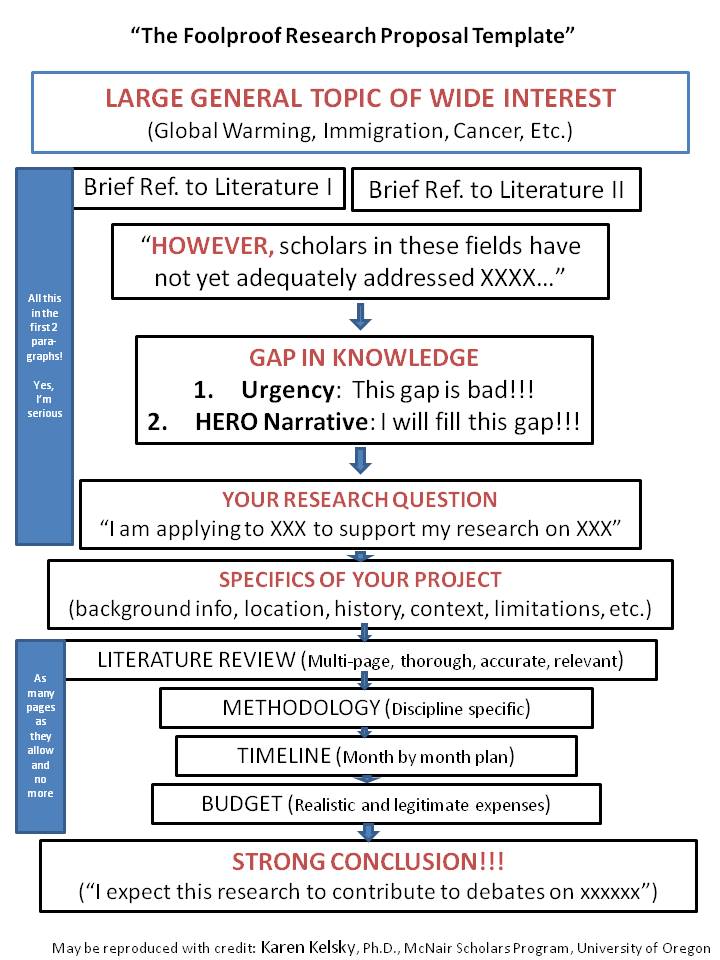Why is the development of research important for KPU?
Research and development at KPU helps to:
- Maintain and build the quality of teaching programs;
- Provide experiential learning opportunities for students and build their skills and expertise;
- Broaden the KPU community and the public’s understanding of new knowledge and developments;
- Enable faculty and staff to carry out their own personal growth and development in their area of choice; and
- Connect KPU to community, industry, and the broader research community.
Why develop a research proposal?
A research proposal helps to:
- Generate funds to sustain a research initiative or research unit;
- Convince others that a research project is worth the effort and is important; and
- Convince others that the researcher has the potential to carry out his/her project and report the findings.
What is a successful research proposal? (at a glance)
A successful research proposal requires minimal effort on the part of the reviewer and should contain the following:
- A great idea, with significant potential and credible impact;
- An expert understanding of a challenge and the solution space needed;
- Credible credentials;
- Plain language that is informative, concise, clear, focused, and on-point;
- A clear plan to deliver impact;
- A well-defined allocation of time and money; and
- Strong leverage that multiplies the value of the funding.
Get prepared.
Consider taking the following preliminary steps before writing a research proposal.
- Verify to which funding agency you should be applying to and be aware of its interests and priorities.
- Carefully read the funding agency’s instructions for important information on the application process and guidance on preparing specific sections of your application.
- Be sure to read the funding opportunity announcement for special instructions.
- Get feedback on your research idea while it is still in the concept stage from colleagues and mentors.
- Make sure you have adequate preliminary data.
- Know your subject, as the funding agency’s reviewers will look for up-to-date knowledge in your research area.
- Ask your colleagues or the ORS for copies of successfully completed research proposal applications to examine.
- Consult your colleagues, partners (community or industry), the ORS staff, or even the grants officer at the funding body to help target your proposal appropriately.
Writing your research proposal.
- Begin by writing a one-page summary of your intended research project and use this as a reference point when writing out the full proposal.
- Anticipate and answer questions a reviewer might ask before he/she asks them, such as: Why fund you? Why fund this? Why now?
- Clearly state how your research will help the funding agency and its priorities.
- Identify a need or challenge and how you plan to fill this gap and/or provide a solution.
- Capture the reviewer’s interest with good presentation. Don’t be afraid to use visuals/diagrams, tables, and headers/footers, and be sure to include section breaks, a lot of white space, and proper word size and font.
Structuring your research proposal.
A common research proposal contains the following:
- a title
- background and Significance
- research challenge and question
- literature review
- theoretical framework/methodology
- timeline
- budget/resources
- conclusion/outcomes
- dissemination
- references
*Be sure to check the funding agency’s guidelines carefully. One of the most common reasons for application failures is NOT meeting the funder’s format and specifications.

Sourced from Dr. Karen Kelsky of The Professor Is In, http://theprofessorisin.com).
The review process.
Research proposals are often ranked into the following categories: fund, fundable, invite resubmission, and reject. Reviewers generally look for the following:
- a clear and well thought out approach
- high quality
- value for money
- hypotheses that are evidence-based and conceptually sound
- an interesting idea that fills a knowledge gap
- a proposal that meets the funding agency’s priorities
- novelty and timeliness
Research proposal checklist
Use this Research Proposal Checklist as a general guideline to ensure your application’s success.